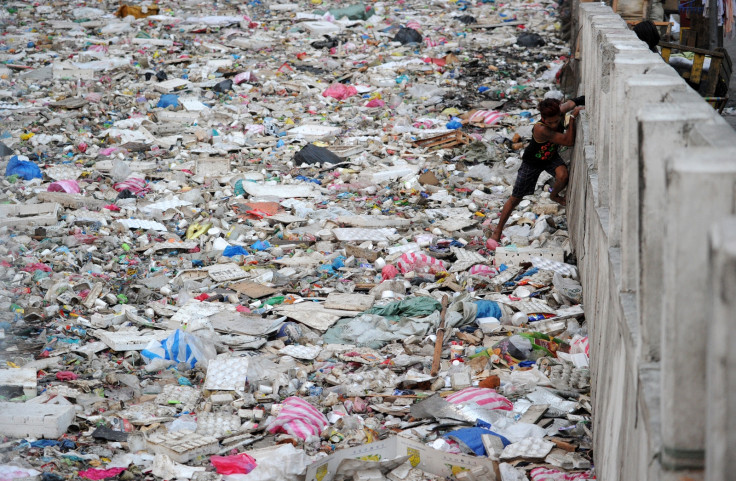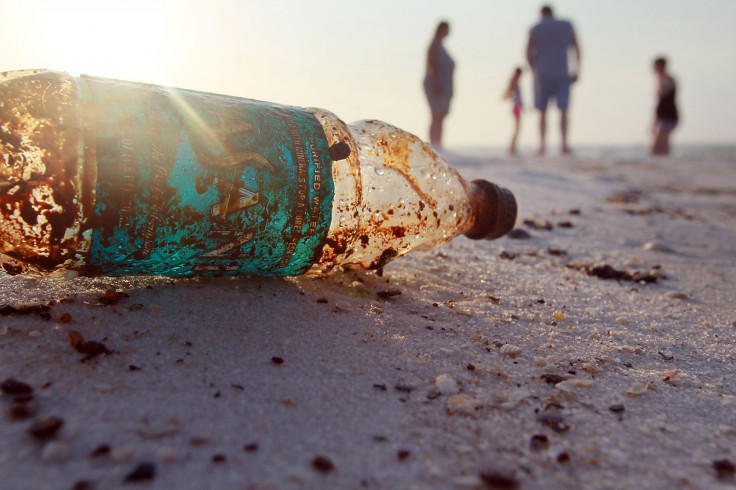World Oceans Day 2016: Facts about plastic pollution and 'healthy ocean, healthy planet' theme

Around eight million tonnes of plastic washes into our seas every year, polluting our waterways and threatening our marine ecosystem. The scale of contamination is immense, stretching across all our planet's oceans from the equator to the polar regions. Plastics, from bags to bottles, also litter our beaches - affecting the health and well-being of animals, plants and humans.
This year's theme for World Oceans Day, marked on 8 June, is "healthy oceans, healthy planet" - to raise awareness of the devastating impact of plastic pollution on our wildlife, climate and health.
What is plastic pollution?
Millions of tonnes of plastic debris such as bags, bottles and food packaging enters our oceans annually. As plastic degrades slowly, it pollutes our seas for a long period, breaking down over time into fragments called micro-plastics. Living organisms are also affected badly by the waste, as they ingest it, become tangled or their biological functions are affected by the exposure to chemicals in the plastic.
More from IBTimes UK
In a United Nations report published in May, scientists warned the chemicals in the plastic - or the chemicals which are attracted to the plastic in the natural environment - could lead to poisoning, infertility and genetic disruption in marine life and potentially humans if ingested in high quantities.
Even the smallest pieces of plastic can have a disastrous impact on our seas. Microbeads, made from polyethylene or other petrochemical plastics, are found in thousands of cosmetic and domestic products from toothpastes to household cleaners. Small enough to wash down the sink and breach water filtration systems, hundreds of thousands of microbeads end up in the ocean where they are ingested by marine creatures.

What you need to know about plastic pollution
Eight million metric tonnes of plastic end up in our oceans every year, according to a UC Santa Barbara study in February 2015.
This is equivalent to five plastic shopping bags filled with plastic debris for every foot of coastline on Earth.
Plastic is gradually eroded into small fragments known as micro-plastics, which along with plastic pellets, are already found on most beaches worldwide.
The amount of plastic waste will be greater than the number of fish in our oceans by 2050, research by the Ellen MacArthur Foundation found in January.
Researchers estimate the amount of plastic in the ocean is set to increase ten-fold by 2020.
More than five trillion pieces of plastic weighing over 250,000 tonnes is afloat in the sea, according to a study published in the scientific journal Plos One.
The Great Pacific Garbage Patch is a vast gyre of marine debris in the North Pacific Ocean, but while the term is widely used, it is not entirely accurate. Marine debris concentrates in various regions of the North Pacific.
Eighty percent of marine pollution comes from the land, according to the National Oceanic and Atmospheric Administration.
© Copyright IBTimes 2025. All rights reserved.





















